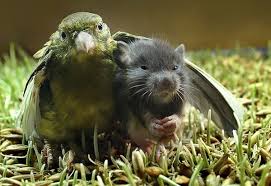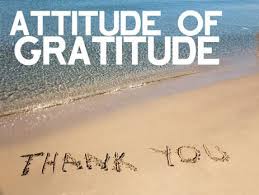
“Before you begin scrambling up the ladder of success, make sure that it is leaning against the right building.”
Steven Covey
The Torah abounds with tales of sibling rivalry that run the gamut from latent hatred to outright murder, and so in Vayeitze, we have a refreshing break as we read the account of sisterly love exhibited between Rachel and Leah. We all know of Rachel’s act of self-sacrifice in favor of her older sister, Leah, when she switched identities under the marriage canopy (and the marital bed) to save Leah from the humiliation of having to marry Jacob’s immoral and depraved older brother, Esau.
Less known is the story where Leah, pregnant with her 7th child, prayed to give birth to a girl and not bear Jacob another son. Leah knew that there were to be Twelve Tribes. When she realized that she was pregnant, Jacob already had ten sons (six from Leah and two from each of the handmaids, Bilhah and Zilpah). Concerned that if she gave birth to another boy, who would be Jacob’s 11th son, at the very best, Rachel could have only one son to complete the destined twelve. To spare Rachel the humiliation of being considered “less than a handmaiden,” Leah prayed for her sister. One account is that God switched the gender of her child from male to female, which resulted in Leah giving birth to Dina. There is a similar account that Leah was pregnant with Joseph and Rachel was pregnant with Dina at the time, and so God switched them in utero – reminiscent of Rachel’s action many years before.
How did these two sisters muster the strength to forbear their deepest desires? In deceiving Jacob, Rachel could have no assurance that she would ever marry the love of her life. At best, she had would have to share her husband. And in trying to avert an imbalance and emotional devastation to Rachel, Leah essentially gave up the chance to be the mother of another one of the tribes, as well as trying to curry any additional favor with Jacob. In exercising such powerful restraint for the sake of the other, both sisters teach us the lessons of altruism.
The Kindness of Strangers
Every day, it seems, the news bears tales of horror, acts of violence and evil unleashed by man upon his fellow. It is often the case, however, that there are heroes that emerge in these stories, and not just people trying to save loved ones, but bystanders who risk life and limb to help total strangers. Why?
To the “survival of the fittest” mentality, altruism has to be an embarrassment. That is why science tries to explain it away as a vestige of a survival tactic when we lived in small groups and tribes of closely related people. Or, the pundits say, altruism is ego-based and self-serving; in that we do kind acts in the hopes of reciprocity, to elicit the admiration of others, or getting brownie points for heaven.
Pure Altruism – It’s an Empathy Kind of Thing
In his article, “Why Do People Do Good Things? The Puzzle of Altruism,” Dr. Steven Taylor pondered his motivation for carefully removing a spider he saw in his bathtub when he could have easily flushed it down the drain. Obviously, there was no social or self-serving benefit to saving a hapless arachnid, and so he discusses the origin of what he terms, “pure altruism:”
I think this simple act was motivated by empathy. I empathized with the spider as another living being, who was entitled to stay alive just as I was. And I believe that empathy is the root of all pure altruism. Sometimes empathy is described as a cognitive ability to see the world through another person’s eyes, but I think it’s actually much more than that. In my view, the capacity for empathy shows that, in essence, all human beings – and in fact all living beings—are interconnected.
When we feel this larger sense of connection and interrelatedness (even with things that seem tiny and insignificant), we respond to the suffering of others with altruistic acts, because they are no longer the “other.” Says Taylor, “We can sense their suffering because, in a sense, we are them. And because of this common identity, we feel the urge to alleviate other people’s suffering – and to protect and promote their well-being —just as we would our own.”
And so the more inclusive of “other” we are in our network of connection, the more extensive is our sense of empathy, which impacts how we behave, from scary spiders and scary people to our loved ones and people just like us. In other words, in the world of action, pure altruism is “other-focused,” but it originates from the inner sense of kinship, and a desire to ease pain.
Gratitude Is Also “Other-Focused”
Says my friend, Megan McDonough, “Gratitude is always a function of being in a relationship with something else. There’s you, and then there’s the person, place, or thing that you are grateful for. That’s why it’s known as ‘other-praising.’ Giving thanks draws you out of yourself and into an appreciative connection.”
The First Thanksgiving – and It Wasn’t the Pilgrims
Leah was the first person in recorded history to say, “thank you” and she named her forth son, Yehuda, from the word, “hoda’ah,” which means, “to thank.” Since names convey spiritual essence, the Jewish people (Yehudim) should realize that gratitude comprises their core component of being. Furthermore, the very existence and makeup of the Twelve Tribes came about through the altruism of two sisters, each motivated by empathy and wanting to ease the suffering of the other.
Stairway to Heaven
In Vayeitze, we also read the story of Jacob’s ladder, reaching from earth to heaven. Let us build our ladders: one side, “Gratitude” and on the other “Empathy.” Let the rungs between them be the steps of compassion, connection, and kindness. Let us lean our ladders against the right wall, climb the ladder of spiritual success, and bring heaven down to earth for a global transformation. May you and every living creature and all things on this planet be at ease, may there be an end to suffering and may there be only peace.
